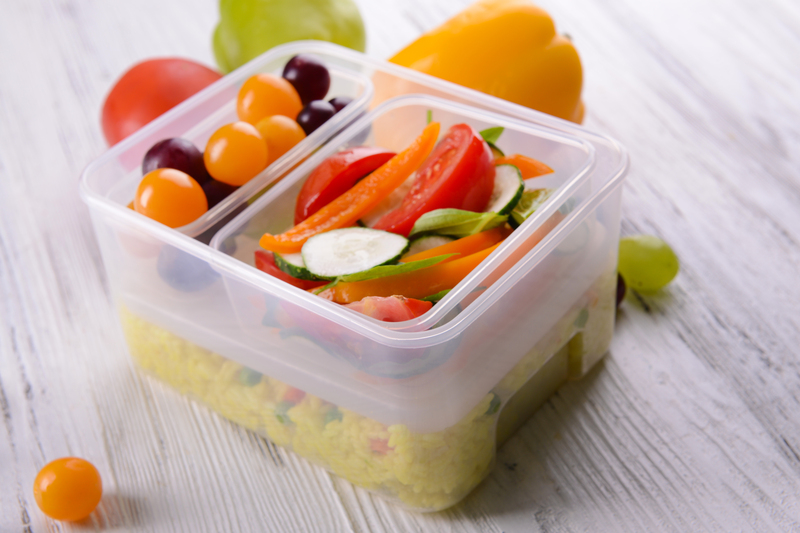Helping Loved Ones With Clutter Removal and Hoarder Clean Up Support
Caring for someone who is dealing with clutter--or even hoarding tendencies--is more than just a matter of cleaning up. It requires a compassionate, understanding approach supported by knowledge, patience, and the right resources. In this comprehensive guide, we'll explore how you can provide clutter removal support and hoarder clean up assistance for your loved ones in a way that's effective, respectful, and sustainable.

Understanding Hoarding and Clutter: More Than Just a Mess
Many people think of hoarding as simply "collecting too much stuff," but hoarding disorder is a recognized mental health condition. According to the American Psychiatric Association, hoarding disorder is characterized by persistent difficulty discarding or parting with possessions, regardless of their value, due to a perceived need to save them. The result? Excessive accumulation and clutter that disrupts a person's living space, safety, and overall well-being.
Recognizing Clutter vs. Hoarding
- Clutter refers to a moderate, manageable mess. Anyone can let clutter build up, but it's typically addressed quickly and doesn't severely impact daily life.
- Hoarding is chronic, often linked with anxiety or trauma, and leads to living spaces being unusable.
- Compulsive acquiring and saving are hallmarks of hoarding, distinguished from garden-variety clutter.
Understanding this distinction is essential for approaching your loved one with empathy, not judgment.
Why Clutter Removal and Hoarder Cleanup Matter
Clutter and hoarding can dramatically affect mental and physical health, safety, and social relationships. Here's why addressing these challenges matters:
- Safety Risks: Piles can block exits and present tripping hazards or even fire risks.
- Health Concerns: Clutter attracts dust, mold, and pests.
- Emotional Well-Being: Living in excess mess increases anxiety, depression, and isolation.
- Relationships: Hoarding can strain family ties and friendships.
By providing clutter clean up support, you help your loved one reclaim their home, safety, and self-esteem.
How to Start: Talking to Your Loved One About Hoarder Clean Up
- Lead with empathy: Acknowledge that the process is difficult and that your intention is to help, not judge.
- Use "I" statements: Say, "I am worried about your safety," rather than, "You need to clean up."
- Choose the right time: Avoid confrontations during moments of stress or high emotion.
- Listen actively: Let them share their feelings and perspective.
*Remember, effective hoarding cleanup support is rooted in trust and cooperative decision-making.*
Steps to Support Hoarder Clean Up and Clutter Removal
1. Assessment: Evaluating the Situation
- Walk through the home together--never alone--to gauge the level of clutter and safety risks.
- Make a list of problem areas and prioritize: kitchens, bathrooms, and exits need immediate attention for safety.
- Consider bringing in a professional organizer or therapist if needed.
2. Planning: Setting Realistic Goals
- Break the process down: Don't attempt to declutter the whole house in one session.
- Set small, achievable goals: Clean one area or fill one bag at a time.
- Create a schedule: Regular sessions (even 30 minutes) are more effective than marathon clean-ups.
Collaborate on this plan to foster a sense of control and partnership.
3. Sorting: Decide What to Keep, Donate or Dispose
- Use labeled boxes or bags: "Keep," "Donate," "Recycle," "Trash."
- Make decisions item by item, respecting emotional attachment but encouraging rational choices.
- Avoid arguing about the value of items; instead, ask gentle questions like, "When did you last use this?"
4. Removing Clutter: Safe and Respectful Disposal
- Arrange for regular garbage pickups or rent a dumpster when necessary.
- Take sensitive items (photos, personal mementos) aside for your loved one's review.
- Consider professional hoarder clean up services for hazardous materials (e.g., rotten food, mold, animal waste).
5. Cleaning and Organizing: Restoring the Space
- Once clutter is removed, thoroughly clean surfaces to eliminate dust and odors.
- Use clear, labeled storage bins for organization and easy access.
- Designate "home zones" for commonly-used items to promote neatness going forward.
6. Prevention: Supporting Long-Term Change
- Discuss installing organizational systems (shelves, storage containers).
- Encourage new routines like weekly tidying or "one-in, one-out" when acquiring new items.
- Continue emotional support--it's about more than stuff, it's about well-being.
When to Seek Professional Clutter Removal and Hoarder Clean Up Services
Sometimes, hoarding cleanup or intense clutter situations require outside assistance. It's not a failure--on the contrary, seeking expert help can be an act of love and responsibility.
- Extreme unsanitary conditions (e.g., biohazards, rotten food, animal waste) demand professional attention for safety.
- If your loved one has significant emotional distress, or challenging behavior surrounding clean-up, a therapist specializing in hoarding might be essential.
- Certified clutter removal services and hoarder clean up teams have experience managing sensitive situations and can work discreetly.
- Junk removal companies efficiently handle large volumes of items, offering responsible disposal and donation options.
*Tip: Search for "professional hoarder clean up near me" for local options specialized in compassionate service.*
The Emotional Aspect: Supporting Your Loved One Through Change
Clutter and hoarding are rarely about laziness. For many, possessions are tied to memories, identity, or a sense of security. Removing clutter can feel like losing a part of oneself. Offer unwavering emotional support:
- Be patient--progress may be slow, but every step counts.
- Avoid judgment--validate their feelings and acknowledge the difficulty of letting go.
- Celebrate milestones--recognize victories, no matter how small.
- Stay connected--isolation can worsen clutter and hoarding; check in regularly and encourage involvement in social or skill-building activities.
Top Tips for Successful Clutter Removal and Hoarder Clean Up
- Work together: Don't force the person to leave while you clean. Participation fosters empowerment.
- Take breaks: Sorting through memories and belongings is exhausting--physical and emotional rest is essential.
- Prioritize safety: Keep clear pathways and address urgent hazards first.
- Use neutral language: Avoid terms like "trash" for items they hold dear; say "unneeded" or "duplicate" instead.
- Ensure privacy: Respect confidentiality throughout the process.
- Consult professionals: Leverage resources such as therapists or organizers if needed.
Resources for Clutter Removal and Hoarder Cleanup Support
- Therapists specializing in hoarding disorder or cognitive behavioral therapy.
- Clutter clean up companies with experience in sensitive and severe cases.
- Nonprofits like the International OCD Foundation, offering information and support groups.
- Books and articles on organization, minimalism, and the psychology of hoarding.
Online Support Groups
- Hoarders Anonymous - Peer-led meetings for those struggling with excessive clutter.
- International OCD Foundation's Hoarding Center - Practical information and referrals for professional therapy.

Maintaining Progress After Clutter and Hoarder Cleanup
The work doesn't stop after the last bag is filled. Consistent, gentle support is key to maintaining a clean, safe, and welcoming home. Here's how you can help your loved one stay on track:
- Check in regularly: Encourage and gently remind them of the new organizational habits.
- Set up routine cleaning schedules: Invite them to join you or offer companionship while tidying.
- Promote new hobbies or interests: Help fill the void left by excessive collecting with positive, meaningful activities.
Above all, continue offering compassion and understanding. Overcoming hoarding is a journey, not a destination.
Conclusion: The Healing Power of Compassionate Support in Clutter Removal
Helping a loved one with clutter removal and hoarder clean up is one of the most powerful acts of love and service. It goes beyond making a home tidy--it's about restoring dignity, safety, and peace of mind. With patience, empathy, and the right resources, you can make a profound difference in someone's life.
If you or someone you know is struggling, don't hesitate to seek out professional clutter removal services or reach out to support groups. Remember, you are not alone in this journey--and the results are worth every effort.
Frequently Asked Questions About Hoarder Clean Up and Clutter Removal
-
Q: Is hoarding just a bad habit?
A: No. Hoarding disorder is a recognized mental health condition often requiring therapeutic support as well as practical help. -
Q: How can I persuade a loved one to accept help?
A: Use empathy and patience. Avoid arguing or ultimatums; instead, gently share your concerns and offer ongoing support. -
Q: Are there discreet hoarding clean up companies?
A: Yes, many professional services prioritize privacy and sensitivity. Look for companies with positive reviews and understanding staff. -
Q: Can clutter removal really improve health?
A: Absolutely! A clean, uncluttered space can reduce anxiety, lower accident risk, and support overall well-being. -
Q: Is relapse common?
A: Relapse can happen. Ongoing support, established routines, and, if necessary, therapy are crucial for lasting change.
Ready to begin? Supporting your loved one through clutter removal and hoarder clean up is a journey you can take together--one step at a time.